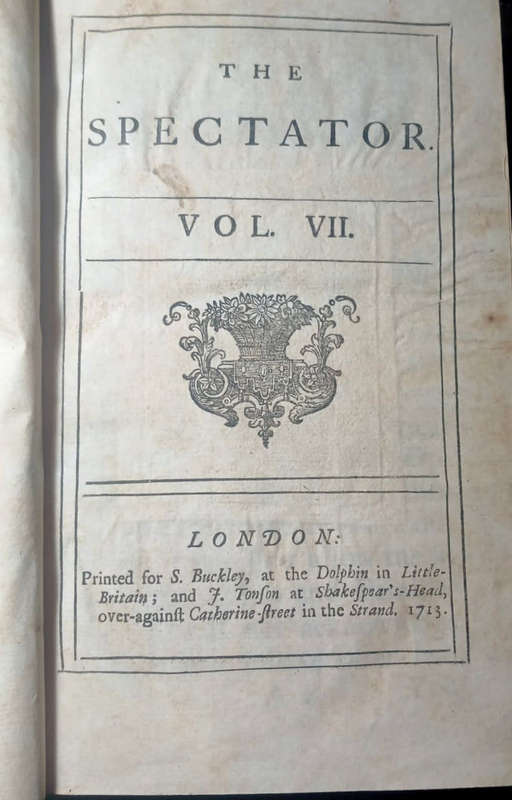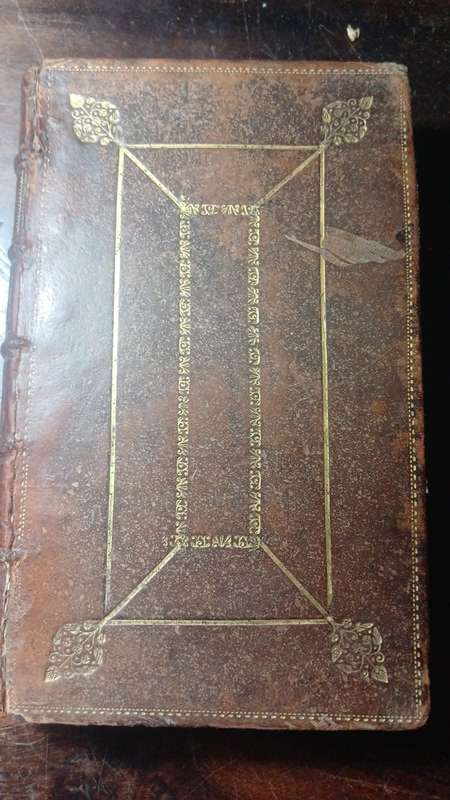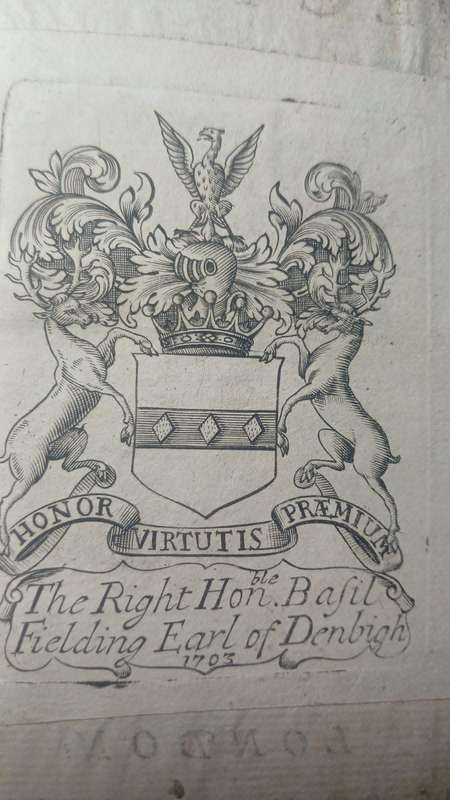









THE SPECTATOR (1713) - with important bookplate
Check my rate
| Main centres: | 1-3 business days |
| Regional areas: | 3-4 business days |
| Remote areas: | 3-5 business days |










| Main centres: | 1-3 business days |
| Regional areas: | 3-4 business days |
| Remote areas: | 3-5 business days |
Volume VII only, printed for S,Buckley of the Strand, 1713, firm leather binding (original) hardcover with gilt designs to boards, ribbed spine with gilt lettering, marbled endpapers, index, 475 pages, 13.2 cms x 20.2 cms x 3.2 cms, condition: very good.
The Spectator is a literary publication by Joseph Addison and Richard Steele. It was a daily publication founded in England, lasting from 1711 to 1712. Each "paper", or "number", was approximately 2,500 words long, in loose and individual newspaper format, and the original run consisted of 555 numbers, beginning on 1 March 1711. These writings were collected and published in book form in seven volumes, (with the 8th volume collected in 1715.)
The paper was revived without the involvement of Steele in 1714, appearing thrice weekly for six months, and these papers when collected formed the eighth volume. The first edition was printed in 1712, with the final volume added to the collection in 1715. This is an exceedingly rare volume.
Bookplate of Basil Fielding (also Feilding), 4th Earl of Denbigh, 3rd Earl of Desmond (1668 - 1717), English peer and member of the House of Lords, styled Viscount Feilding from 1671 to 1685.
The Spectator was a daily publication founded by Joseph Addison and Richard Steele in England, lasting from 1711 to 1712. Each "paper", or "number", was approximately 2,500 words long, and the original run consisted of 555 numbers, beginning on 1 March 1711.
Joseph Addison was an English essayist, poet, playwright, and politician. His simple prose style marked the end of the mannerisms and conventional classical images of the seventeenth century.
The Spectator had many readers in the American colonies. In particular, James Madison, 'father of the US constitution', and the fourth president, read the Spectator avidly. It is said to have had a major influence on his world view, lasting throughout his life (1751 - 1836). Benjamin Franklin was also a reader, and the Spectator influenced his style in his "Silence Dogood" letters.
Jürgen Habermas, philosopher, saw The Spectator as instrumental in the formation of the public sphere in 18th century England..
One of the great augustan periodicals defining British journalism, and comprised one of the most triumphant literary endeavours of the age, The Spectator transformed periodical writing, in English..